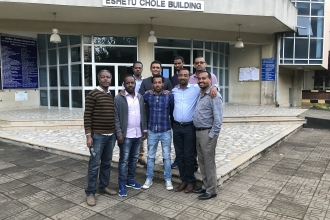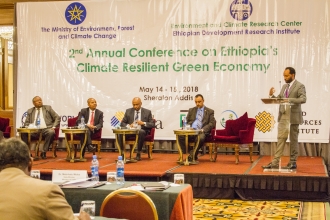Using Data on Social Influence and Collective Action for Parameterizing a Geographically-Explicit Agent-Based Model for the Diffusion of Soil Conservation Efforts
Social influence affects individual decision-making on soil conservation. Understanding the emergent diffusion of collective conservation effort is relevant to natural resource management at the river basin level. This study focuses on the effect of subjective norms and collective action on the diffusion of Soil Conservation Effort (SCE) in the Lake Naivasha basin (Kenya) for the period 1965–2010. A geographically-explicit Agent-Based Model (ABM) version of the CONSUMAT model was developed: the CONSERVAT model.


